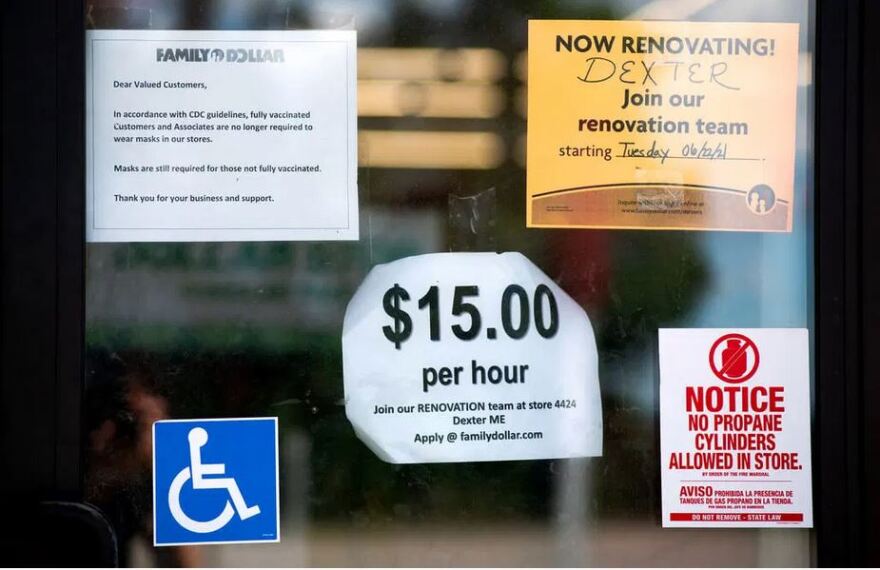AUGUSTA, Maine — Maine is expanding a program providing bonuses to people on unemployment benefits who start new jobs this summer after relatively few took the state up on it in the first two weeks.
The “Back to Work” program, announced in mid-June, offered one-time payments of $1,500 to unemployed workers who begin new full-time jobs. It aimed to provide an extra incentive at a time when employers argued that high benefit amounts were keeping people from rejoining the workforce, although advocates and labor groups contest that claim and a recent New York Times analysis found states that cut expanded federal benefits did not see stronger job growth.
The Maine Department of Labor initially indicated the program could reach up to 7,500 people. But only about 100 employers applied for benefits on behalf of about 300 workers in the first two weeks, according to state data. Just over a fifth were in the accommodations and food sector, one in which employers have struggled to hire in recent months.
Citing feedback from workers and employers, the state announced changes to the program Thursday. The payment amount was supposed to drop to $1,000 on July 1, but will now stay at $1,500 through the program’s July 25 end. The state is also introducing a $750 payment option for workers who return to part-time work but are no longer eligible for unemployment benefits.
Adding the benefit for workers who take part-time jobs could boost participation in the program, said James Myall, an analyst for the liberal Maine Center for Economic Policy. He noted that many available seasonal hospitality jobs may be part-time or have inconsistent hours.
The program will maintain requirements about wages and duration of employment, with only those working making less than $25 per hour eligible. Workers also must stay in their job for at least eight weeks, after which employers can apply for the bonus on their behalf.
The number of Mainers claiming unemployment benefits has dropped slightly in the past few weeks, from 37,214 for the week ending June 12 to 35,700 for the week ending June 26, according to state data. But that is part of a broad trend of declining claims since early March.
While the extra $1,500 might provide extra incentive for some workers, Myall noted that it might not address some of the reasons that people remain on unemployment benefits.
“If you’ve got a child care issue, or you can’t find work on the schedule you need, or work that’s available in the right area for you, or you’ve got some COVID or health concerns, all those things aren’t necessarily going to change by a hiring bonus,” he said.
Employers are not required to participate in the program — though it comes at no cost — but Labor Commissioner Laura Fortman said in a statement that the program was “gaining momentum” as awareness increased.
“By extending the $1,500 grant through the end of the program, we hope that more employers are able to offer this payment to their newly hired employees,” Fortman said.


